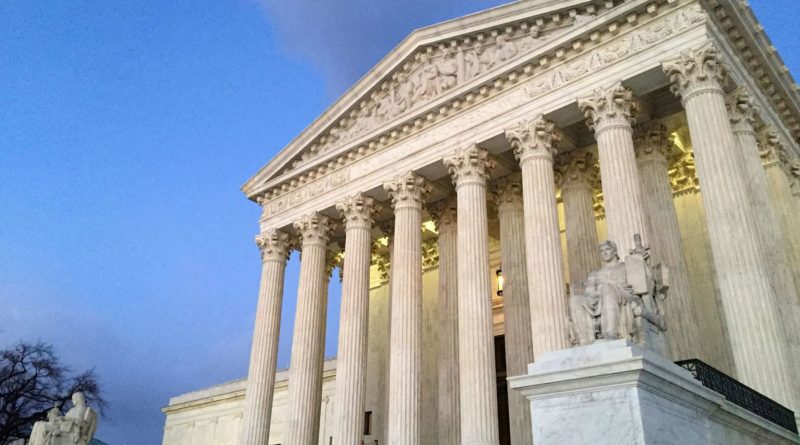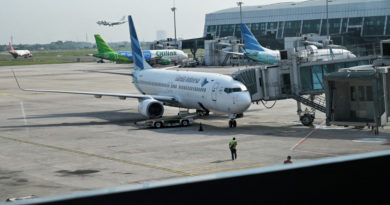POLITICS-IMMIGRATION: WASHINGTON – Supreme Court extends relief for ‘Dreamers,’ refuses to rule now on Trump immigration plan
The Supreme Court handed President Trump a significant defeat Monday, turning down the administration’s plea for a quick ruling on the president’s power to end special protections for so-called Dreamers.
The court’s decision not to hear the administration’s appeal immediately could keep in place a legal shield for the nearly 700,000 young immigrants for the rest of this year, and perhaps longer.
The Justice Department had sought to leapfrog the U.S. appeals courts in California and New York. The department had asked for an “immediate review” of a nationwide order by U.S. District Judge William Alsup in San Francisco that required the government to maintain for now the Obama-era program known as Deferred Action for Childhood Arrivals, or DACA.
The action the administration sought was rare. It has been nearly 30 years since the Supreme Court granted review of a district judge’s ruling before an appeals court could weigh in. And the court said Monday it had no interest in following that course in the DACA case.
The justices, without dissent, turned down the administration’s petition “without prejudice,” meaning that the government could return to the high court once the appeals court rules.
“It is assumed that the Court of Appeals will proceed expeditiously to decide this case,” the justices noted.
The action by the high court was procedural in nature, and not a ruling on the substance of the case, but its impact could be significant because it keeps in place Alsup’s nationwide injunction.
Last fall, when he announced that he would end the DACA program, Trump gave Congress until March 5 to pass legislation to resolve the legal status of the Dreamers.
But lawmakers have failed to agree on new legislation. Earlier this month, the Senate considered four proposals to change the immigration laws, but could not muster the required 60 votes to proceed on any of them.
With the nationwide court order in place, Trump’s March 5 deadline is essentially dead. In their appeal to the high court, administration lawyers said the injunction would likely last well into 2019 if the appeals run their normal course in the lower courts.
Even if the Court of Appeals does act “expeditiously,” as the justices suggested, a ruling would be unlikely before summer. That would mean the earliest the case could return to the Supreme Court would be in the fall, with a ruling possible by the end of the year.
That’s assuming a speedy path for the litigation. A scenario in which the case doesn’t return to the high court until a year from now is quite possible.
Congress could change the situation at any time, but it would need to agree on a new law.
After Alsup issued his order last month, U.S. Solicitor General Noel Francisco surprised many observers by not asking the Supreme Court to grant a stay that would put the order on hold. He asserted that such a stay would result in an “abrupt shift” in the enforcement policy, while the administration favored an “orderly wind-down of the DACA policy.”
Instead, Francisco insisted the high court should grant review ofAlsup’s opinion, hear arguments in the spring and then reverse the judge’s decision in a written ruling.
“The district judge’s unprecedented order requires the government to sanction indefinitelyan ongoing violation of federal law being committed by nearly 700,000 aliens,” Francisco wrote, referring to the young immigrants brought to the U.S. illegally as children.
In his ruling, Alsup said Trump’s advisors, led by Atty. Gen. Jeff Sessions, had been wrong when they decided President Obama lacked the authority to extend relief to the Dreamers.
Alsup agreed “a new administration is entitled to replace old policies with new policies,” but nonetheless concluded that the “flawed legal premise” set out by Sessions could not serve as a basis for ending DACA now.
His preliminary injunction required the administration to “maintain the DACA program on a nationwide basis.” However, he said nothing in his order would prevent federal authorities from “removing any individual, including any DACA enrollee, who it determines poses a risk to national security or public safety.”
The administration filed an appeal in the U.S. 9th Circuit Court of Appeals, based in San Francisco, but the solicitor general opted to go directly to the Supreme Court to seek a quick reversal.
Last week, while the justices were considering the matter, a second district judge in New York handed down another order blocking the administration from winding down the DACA program.
UPDATES:
6:50 a.m.: This article was updated with the court’s decision on Monday to turn down the administration’s appeal.
This article was originally published at 6:39 a.m.


David G. Savage
[email protected]
On Twitter: DavidGSavage
NOTE : All photographs, news, editorials, opinions, information, data, others have been taken from the Internet .. aseanews.net | [email protected] | For comments, Email to : Aseanews.Net | [email protected] | Contributor:









